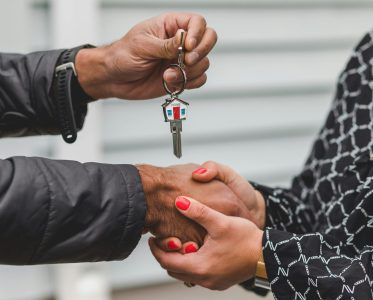Application process for contracting a Spanish Mortgage
The process of applying for and contracting a loan in Spain may vary from what you are used to. Whilst the lending practices are covered by EU regulation, the legalities are also is adapted to Spanish Law.
Contracting of a loan
Spain has different legal processes to other countries, for Spanish mortgages. Whilst many similarities apply, the legal requirements in Spain reflect Spanish Law. As a Non residents buyer you may not know these laws. It is therefore ideal to understand this, before making application process for a Mortgage in Spain.
- June 2019 saw European wide practices adopted
- These rules ensured all EU based Banks adhered to specific sets of guidelines
- Most importantly relating to the information given prior to, and on signing of a home loan
- There however remains differences between countries, in terms of product conditions and securitization
To find out more email, or call us today
Gaining a financial approval
To gain a financial approval a formal application must be made. AIPs without documents is not possible in Spain.
- Applications for Spanish mortgages generally reflect the application process of most countries
- The Spanish Banks require documentary evidence from the applicant
- Firstly, confirming who they are
- Secondly their fiscal situation in terms of income and debts
- Thirdly source of deposits.
- Only official documents are acceptable
At IMS we offer a no cost and no obligation full financial approval service.
Spanish Bank application requirements
Each Bank in Spain has its own level of mortgage application requirements. The Bank of Spain moreover will have agreed these.
- The lender must undertake due diligence
- It is a key requirement that loan affordability is verified
- Lenders will look to see that outgoings on regular debt payments, don’t exceed their specified ratio
- This calculation also includes new payment in Spain
- Affordability ratios do vary from Bank to Bank
- In general, debt payments should not exceed 35% of your net incomes. Spanish Banks work on net incomes, when approving a mortgage application in Spain
How do Spanish Banks underwrite an application
Each Bank in Spain has a different process for underwriting an application
- A few Spanish Lenders use internal scoring systems
- Therefore, information fed into the scoring system provides an initial viability check
- The scoring system takes into account performance of existing loans
- Including Historic indicators of high or low risk. Based on performance of their existing mortgages in Spain
- Scoring systems can affect an application if they fall into one of the systems high risk categories
- Many Banks in Spain however do not have sophisticated underwriting tools
- They therefore work to a set level of parameters, in terms of debt to income ratios
- In addition maximum loan to values.
- Individual preferences or views of the underwriting teams are another factor
What is the stage after financial approval
A fiscal approval does not require a valuation. After approval the applicant pays for and undertakes a valuation. Once terms and conditions are agreed. Also a specific property exists.
- Each Bank in Spain has its panel valuation companies
- Current legislation states that you can instruct a valuation company of your choice
- Some banks may however not accept the application if you wish to use your own valuation report
- The Bank of Spain regulates valuation companies
- When providing a mortgage value there are rules. The Valuation report will check legalities of the property
- Firstly ensuring certain licenses are in place
- Secondly that there are no outstanding infractions against the property
- Checks are however to protect the Bank, not the buyer
- Consequently for the buyer it should not replace what a Spanish Lawyer would do on their behalf. However a formal valuation provides a further level of security
Application process in Spain to obtain Mortgage Offer
In the past Banks in Spain only verbally confirmed offers. Lack of written confirmation meant terms of the Spanish mortgage signed at notary, could be different to expected.
- All Spanish Banks now have to provide a much higher level of transparency. The new legislation of 16th June 2019, dictates this
- Spanish Banks are required, at offer to provide borrowers with a FIEN and a general information sheet
- This document clearly outlines the agreed terms of the loan. This in turn should reflect what is in the deed at completion
- A FEIN is a personalized, specific information sheet outlining the basis of the loan offer. At signing, it is now a requirement the Notary checks the deed against the FEIN provided
- The FEIN is also required to show the TAE. The TAE is the annual rate which also takes into account costs of the loan
- A minimum of one day before completion its necessary for the borrower, or POA to attend the Notary. Within this visit the loan signatory must answer a number of questions. This is to ensure they understand the terms of the loan contract

Process after
The mortgage is obtained
Completion of a Spanish Mortgage
All Spanish mortgages terms are embedded in a legal deed.
- The deed outlines the terms and obligations for both the lender and the mortgagee
- Once signed it is legally binding on both parties
- The Notary oversees the transaction
- However either the mortgagee, or their representative and a representative from the Bank must be present
- The Notary will require the person signing, either speaks Spanish or has an interpreter with them
- Understanding what you are signing is important
- Bank arrangement fees are payable at completion. Deducted from the gross loan amount
Making changes to the deed, after completion, may instigate a new deed. There are a few exceptions. A change of rate, or term of loan, can be made without a new deed. The mortgage deed is legal and binding on behalf of both parties, once signed.
Post Signing of mortgage deed
Retained at completion are taxes and costs. This may include tax obligations on behalf of the seller. Which would be deducted from monies transferred to them.
- The paperwork is passed to Land registry, by the Bank
- Copies of the deed are given to the client
- It must be borne in mind the original deed will not be available until Land registry has agreed it
- Occasionally land registry may request that certain matters are clarified before registration takes place
- To ensure the loan is secured, the lender keeps control of the registration process. Loan deed costs are paid by the Spanish Bank. The purchase deed costs however are paid by the buyer
- When land registry agrees the transaction, the deed is finalised
- Until that point, exact costs of registration will not be known
- Most Banks therefore retain a higher level of costs than required
- Any surplus is paid back to the borrower, when all invoices are paid
- All deeds and invoices are available once the registration has taken place. Original documents pertaining to the transaction are forwarded to the mortgage holder
Post mortgage registration in Spain
Your appointed Lawyer should ensure all paperwork is gained post registration and held securely
- These documents are crucial when you come to sell your Spanish Property
- Firstly they are required to ensure costs can be offset against capital gains tax
- Secondly at sale all documents must be provided to the new buyers lawyer
- Post registration, changes can be made to the existing Spanish mortgage deed
- These are known as Novacions. They are limited to interest rate adjustments and alterations to the term of the loan
- Under new legislation it is now allowable, to change from a variable rate to a fixed rate product
- Legislation dictates any cost of swapping from variable to fixed, will not exceed 0.15% for the first 3 years and 0% thereafter. However in this instance the notary and land registry costs can be responsibility of the borrower.
Swapping to a fixed rate, after completion is only possible if the Bank offers a fixed rate product.
Buying Real Estate
with a Mortgage in Spain
Testimonials
Feedback from clients
Dear Heather, Ravena and Cecilia
You have been more than helpful and should we find anything else that we feel suits our needs we would not hesitate to use your company again.
You have been an absolute star and I cannot thank you enough because we may have been pressured into paying a 3000 Euro deposit early on if it wasn’t for you and your valuable information.
Hopefully we will be successful at securing a property in Majorca in the near future and look forward to working with you again.
Kindest Regards and Highest Recommendations,
Catherine, Keith, Ray and Marie



